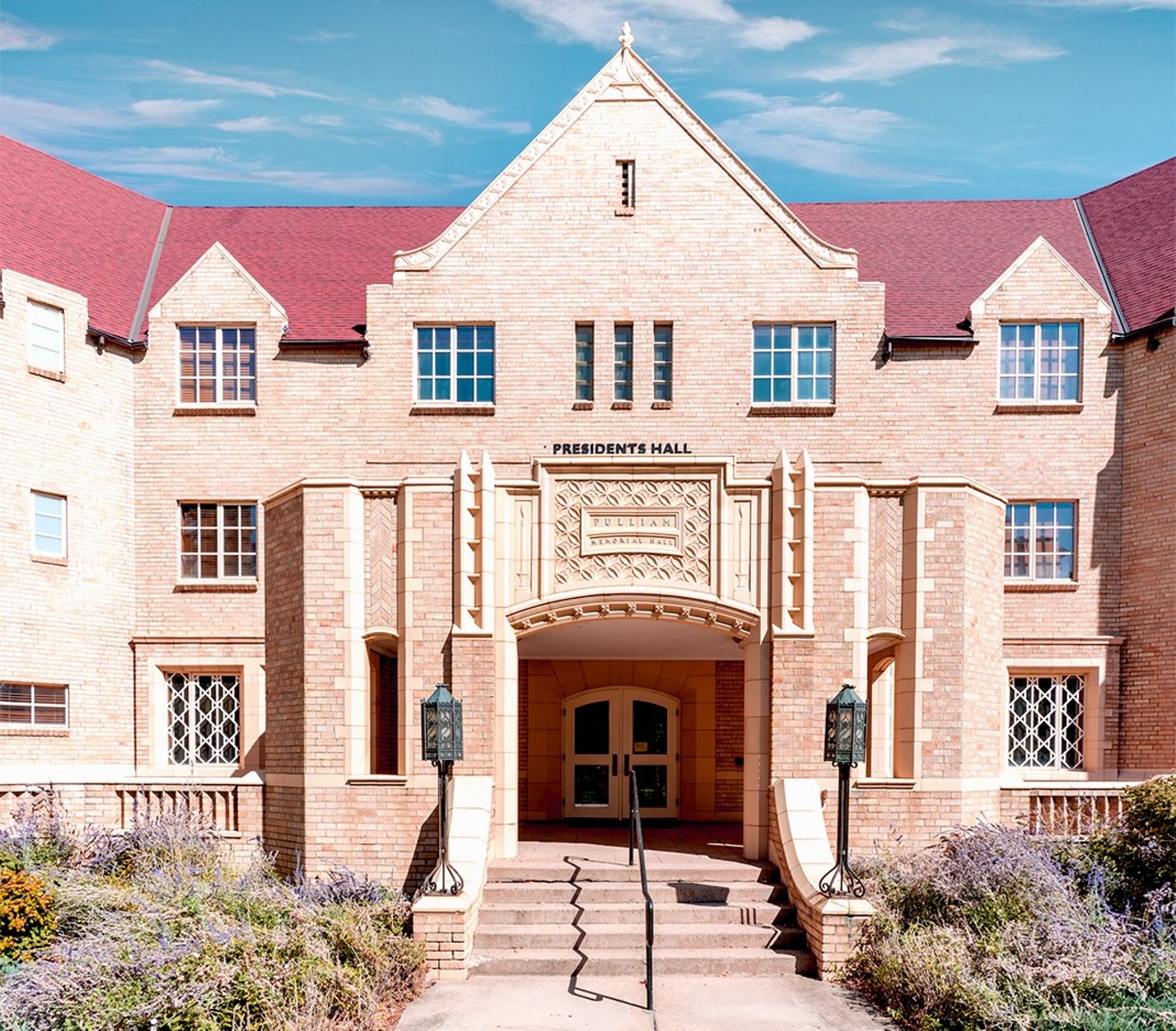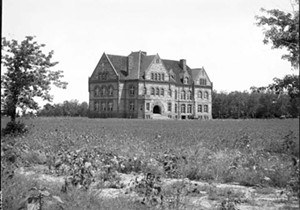Today, December 19, Denver City Council will vote on whether to approve a $3.85 million loan for a project to redevelop part of the former Johnson & Wales University campus into affordable housing for families.
"We had fantastic historic buildings to work with that are of a much higher quality than anything an affordable-housing developer could afford to build today," says Julie Stern, director of real estate for Archway Communities, the affordable-housing developer working on the project.
The campus got its start in 1909, when the opening of Colorado Women's College realized a dream of city boosters to create a Vassar College of the West. The school started with a single building, later named Treat Hall in honor of the college's first president, Jay Porter Treat; that structure is now listed on the National Register of Historic Places. Many more buildings were added to the campus in the decades that followed.
By 1982, though, the college was struggling with declining enrollment and merged with the University of Denver; its campus became DU's Park Hill Campus and housed the Sturm College of Law. But in 2000, DU sold the property to the Rhode Island-based Johnson & Wales University, which wanted to open a second branch of the school known for its culinary and hospitality programs. Two decades later, in mid-2020, Johnson & Wales announced that it would be shutting down its Denver campus.
In June 2021, the Urban Land Conservancy, Denver Public Schools and the Denver Housing Authority joined together to purchase the 25-acre property at Montview Boulevard and Quebec Street for $61.5 million, renaming it "Mosaic Community Campus."
The affordable-housing project, which Archway Communities is undertaking in partnership with the Urban Land Conservancy, will cost $66 million. The plan calls for transforming four dormitories, which hold close to 400 dorm rooms, into 154 affordable family units; Archway is scheduled to complete construction in early 2024.
"The Park Hill Campus project provides much-needed affordable units, including a high concentration of family-sized units, which is one focus area for HOST dollars," says Derek Woodbury, a spokesperson for the Department of Housing Stability, which would provide the $3.85 million loan. "HOST is proud to serve as a gap financer for many different types of income-restricted housing developments, including new construction, adaptive reuse projects, and preservation of existing affordable units."
The adaptive reuse should help cut costs. "The prior use of the buildings as dorms also meant that the guts of buildings were already fairly similar to what we needed to support multi-family housing — for example, there was already plumbing throughout the buildings — which provided significant cost efficiencies," says Stern.
Archway notes that it's spending about $190,000 per unit in hard costs at what the firm is calling the Park Hill Family Campus, and about $200,000 per unit in hard costs at Archway's new development in Lakewood, which it calls Robinson Place.
In the four buildings, Archway plans to construct 58 one-bedroom units, 70 two-bedroom units and 26 three-bedroom units, all affordable to people making anywhere from 30 to 60 percent of the area median income. Thirty percent of the AMI in Denver for a four-person household is $35,150, while 60 percent of the AMI for a same-sized household is $70,320.
To make the numbers work, the development requires a complex array of funding mechanisms. Aside from the expected loan from the City of Denver, Archway is using other methods to pay for the project, including federal and state low-income housing tax credits. Archway was also able to count on significant tax credits because of the age and historic significance of the buildings.
"All of these factors made adaptive reuse particularly sensible here. It’s certainly an interesting option to explore any time there is an existing structure to work with, but unfortunately in many cases, it can be physically infeasible or cost-prohibitive," Stern adds.
Under the terms of the loan agreement with the City of Denver, the property will have a sixty-year covenant that keeps the affordability requirements in place, and $2.85 million of the $3.85 million loan will be forgiven after sixty years if the agreement is upheld.
Archway's affordable-housing project isn't the only action in the area. The Denver Housing Authority, which did not return a request for comment, owns a portion of the southern section of the campus, including two more buildings. And buildings in the middle section of the property along Quebec Street, which is owned by the Urban Land Conservancy, house the Kitchen Network, a nonprofit kitchen incubator, and St. Elizabeth's School, an Episcopal middle school.
The campus also became home to Denver School of the Arts in 2003, when Denver Public Schools purchased the building formerly occupied by DU's Lamont School of Music. Now there's a plan to expand on the property. "The Johnson & Wales buildings would become the high school campus," says Scott Pribble, director of external communications for DPS. "Construction is scheduled to start in February 2023, with substantial completion in the spring of 2024."
But Denver School Board members have questioned whether it's worth investing more money into such an expansion when enrollment is declining across the district.
[
{
"name": "Air - MediumRectangle - Inline Content - Mobile Display Size",
"component": "12017618",
"insertPoint": "2",
"requiredCountToDisplay": "2"
},{
"name": "Editor Picks",
"component": "17242653",
"insertPoint": "4",
"requiredCountToDisplay": "1"
},{
"name": "Inline Links",
"component": "18838239",
"insertPoint": "8th",
"startingPoint": 8,
"requiredCountToDisplay": "7",
"maxInsertions": 25
},{
"name": "Air - MediumRectangle - Combo - Inline Content",
"component": "17261320",
"insertPoint": "8th",
"startingPoint": 8,
"requiredCountToDisplay": "7",
"maxInsertions": 25
},{
"name": "Inline Links",
"component": "18838239",
"insertPoint": "8th",
"startingPoint": 12,
"requiredCountToDisplay": "11",
"maxInsertions": 25
},{
"name": "Air - Leaderboard Tower - Combo - Inline Content",
"component": "17261321",
"insertPoint": "8th",
"startingPoint": 12,
"requiredCountToDisplay": "11",
"maxInsertions": 25
}
]













